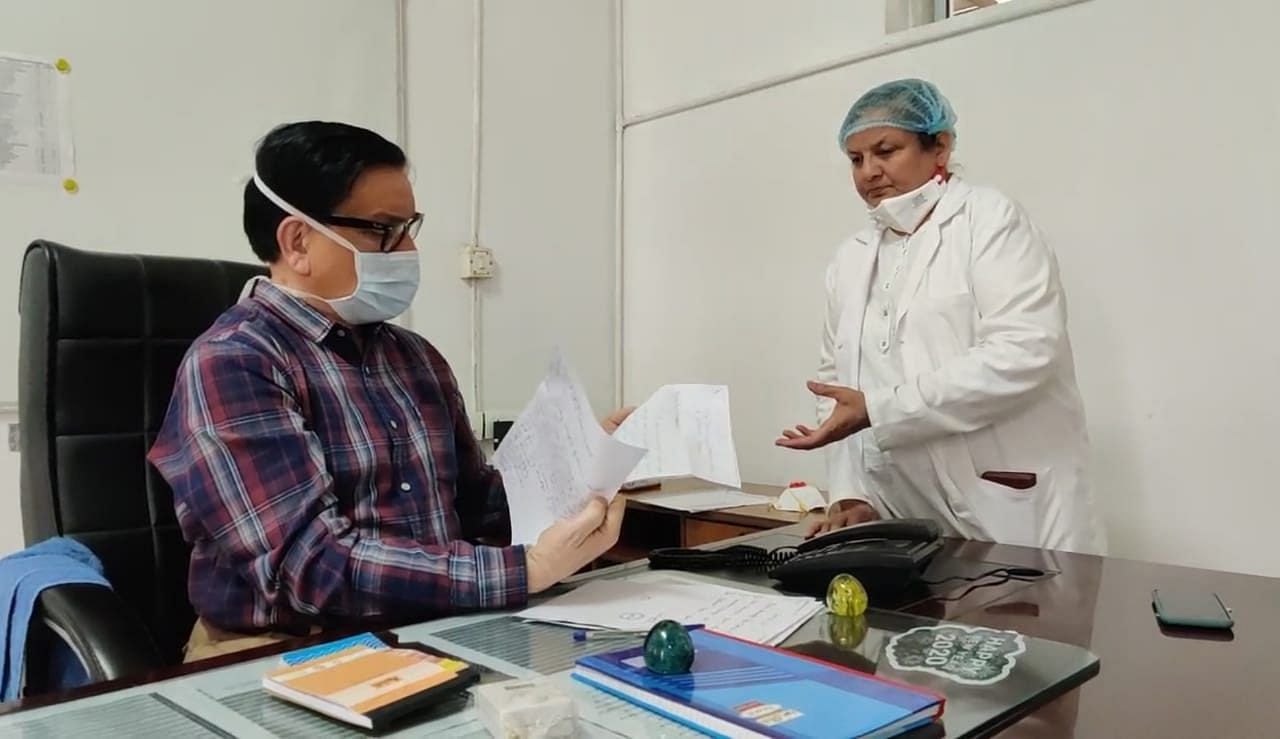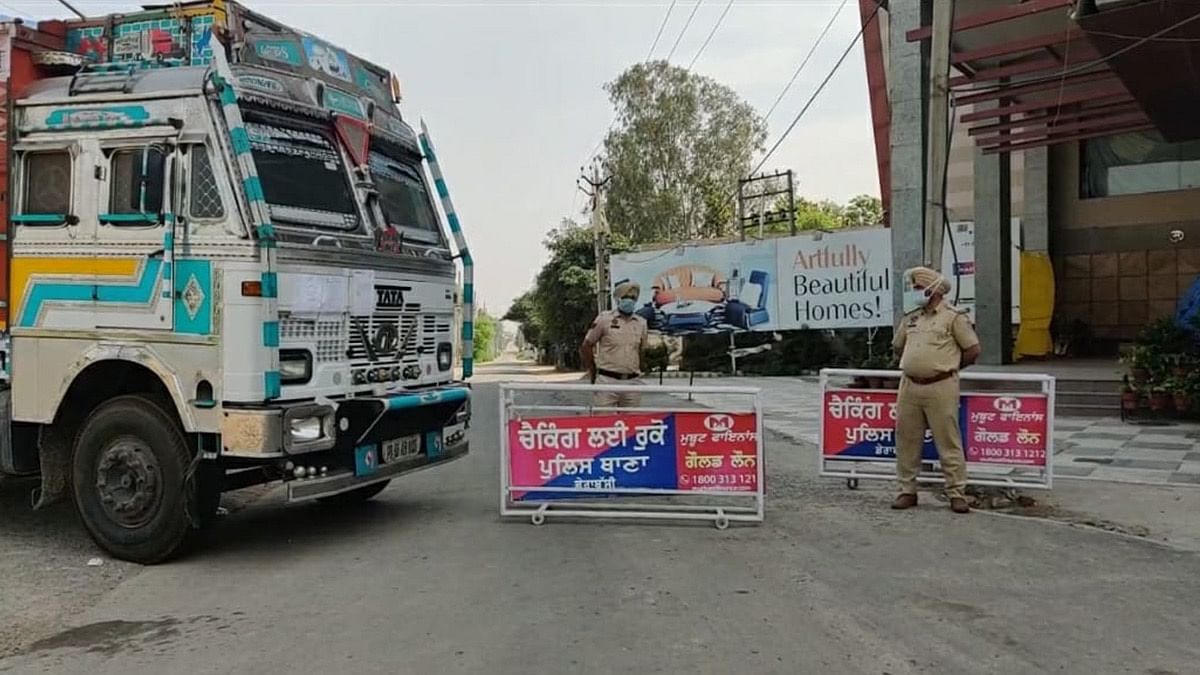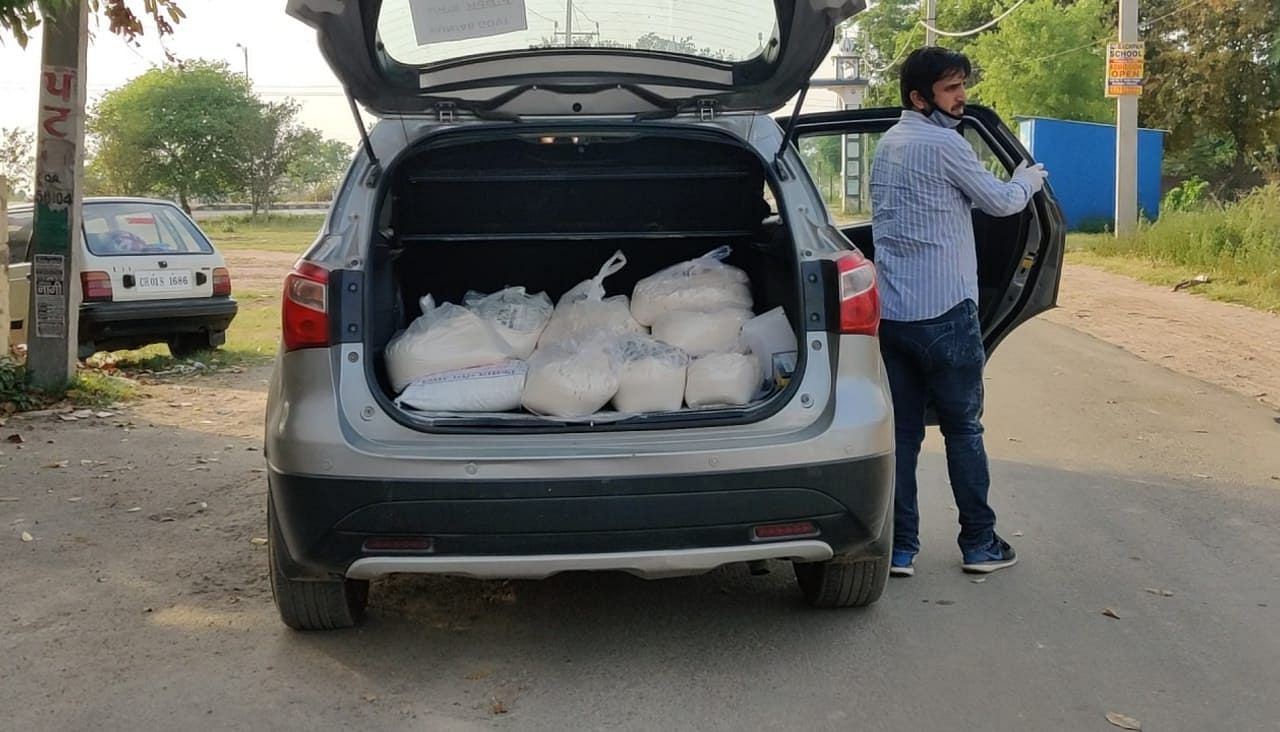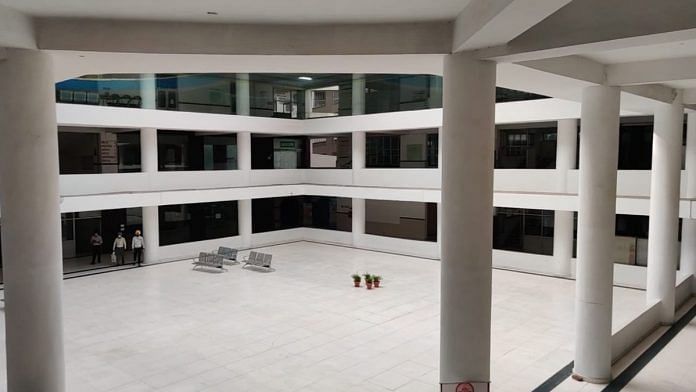Punjab: There is not a soul in the area surrounding the Gian Sagar Medical College and Hospital at the Punjab city of Banur — just 20 km south of the state capital Chandigarh. The hospital itself is almost haunting in its all-white interiors.
Declared as a nodal centre for the coronavirus outbreak by the Punjab government on 24 March, Gian Sagar has 51 positive cases from three districts earmarked for it — SAS Nagar, Fatehgarh Sahib and Roop Nagar.
The hospital is critical in Punjab’s fight against Covid-19 as it houses 38 patients from just one village — Jawaharpur. The village at Dera Bassi sub-division in SAS Nagar (Mohali) district is home to roughly 3,200 people and is so inconspicuous that it can be easily missed if one is not paying attention while on National Highway 1.
But the village is responsible for SAS Nagar being identified as one of the 170 hotspots in the country, with the government classifying it in the Red Zone. Districts in the Red Zone will have to follow stringent lockdown measures.
However, Colonel S.P.S. Goraya, the nodal centre’s medical superintendent, told ThePrint that for the past two days — since 14 April — no coronavirus patient has been admitted here.
“The first patient came to us on 27 March. The rate of cases per day fluctuates, once we got 10 patients in just a single day,” Goraya said.
Punjab is among the states with fewer cases in the country. As of Friday morning, the state has 186 active cases with 13 deaths. It does, however, have three other districts — SAS Nagar, Jalandhar and Pathankot — in the Red Zone.

Curbing the coronavirus spread
Punjab has been proactive in dealing with the crisis. It was one of the first states to extend the lockdown on 10 April when Chief Minister Amarinder Singh announced it until 1 May. This was before Prime Minister Narendra Modi extended the nationwide lockdown until 3 May.
Goraya maintains that the situation is not too bad in the state, citing timely action by the authorities. He, however, advocated against complacency at all costs.
“Until date, we have not put anyone on a ventilator. However, it seems as though one patient is not doing very well and may require medical support,” Goraya said.
The hospital is equipped with 500 beds, 20 ICU units with ventilators, 26 junior residents, three to four medical officers, 22 specialists, such as paediatricians and anaesthetists, and 82 nurses.
Ample precautions are being taken by the hospital staff — who work in three shifts of eight hours each — whether it is those who come in direct contact with a positive patient or others, Goraya said.
Once the medical staff finish their shift for the day, they are required to go home and return only after a break of five days.
Such steps are necessary to monitor if the staff get fever or show other symptoms such as cough and shortness of breath, said Dr Surbhi, a senior demonstrator in the department of microbiology and part of the hospital sanitation team.
“As of now, things are going pretty well and the medical staff has also been doing well, health-wise,” Dr Surbhi told ThePrint.
Access to medical equipment has proven to be a struggle for hospitals across India but Gian Sagar Medical College and Hospital seems to be managing well.
Goraya maintained they are not facing any shortage as of now. “The healthcare workers who are in direct contact with the patients are following universal protocols, which includes them wearing PPE kits, N95 masks and gloves to ensure that the whole body is covered,” he said.
Dr Surbhi said that the hospital has also put stringent sanitation measures in place. She explained that once an ambulance reaches the emergency centre, a different staircase is used for the patient and that route is disinfected using sodium hypochlorite.
“As a routine, the hospital building is sanitised two to three times a day at least, and the areas close to the corona-ward are sanitised upto four times daily,” Goraya told ThePrint.
Also read: Who are Nihang Sikhs? ‘Guru di laadli fauj’ warrior sect in news for chopping off cop’s hand
The hotspot
At Jawaharpur, the village has been sealed by the Punjab government, with police deployed at all entry and exit points. A three-kilometre area has been completely sealed and is patrolled 24×7 to ensure nobody steps out. The police vehemently refused to let any resident speak with ThePrint despite some of them being in the unsealed area.
The Punjab Police are under pressure here.
With temperatures north of 35 degrees Celsius, three policemen have been spending upto 12 hours a day at the barricaded spot just 500 m off the national highway. The state government has been providing them with masks, sanitisers and food twice a day.
Among them is Sub-Inspector Ashok Kumar who travels 20 km a day for his 12-hour long shift. “Action will be taken against anyone who is seen breaking the curfew,” Kumar told ThePrint. “Two to three days ago, two 25-26 year olds were caught breaking the curfew without reason and an FIR was lodged against them. They are now out on bail.
“We are only here to serve the people,” Kumar added.

Essential services on track
The state government has deputed Jawaharpur panchayat secretary Jatinder Singh to ensure essential services are provided to the residents of the sealed area.
Singh, who has been coming here for 13 days now, has parked his car under a lone tree for some respite from the searing heat. “If the residents need anything, they WhatsApp it to me and I arrange it for them,” Singh told ThePrint.

While Jatinder Singh manages goods by bringing them to the accessible side of the barrier, Gurmukh Singh, a village resident, has been running the show within the sealed areas by sanitising and delivering the goods to the residents.
It takes three to four days for the requested rations to reach the residents but in case of emergencies when basics like rice and pulses are required, it can be done on the same day, Gurmukh said.
“I’m not doing this for anyone, I’m doing this for my village. I have decided that I will not let this coronavirus chain spread any further,” Gurmukh, who was armed with a cloth mask, plastic goggles and a jacket made out of non-woven fabric, told ThePrint.
In line with World Health Organization (WHO) guidelines on social distancing, cash payments can be made on a “piggy-bank” attacked to the hood of Jatinder’s car. He also carries a card machine and allows Paytm and Google Pay.
Also read: Amarinder says Punjab seeing community transmission of Covid-19, first CM to declare so



